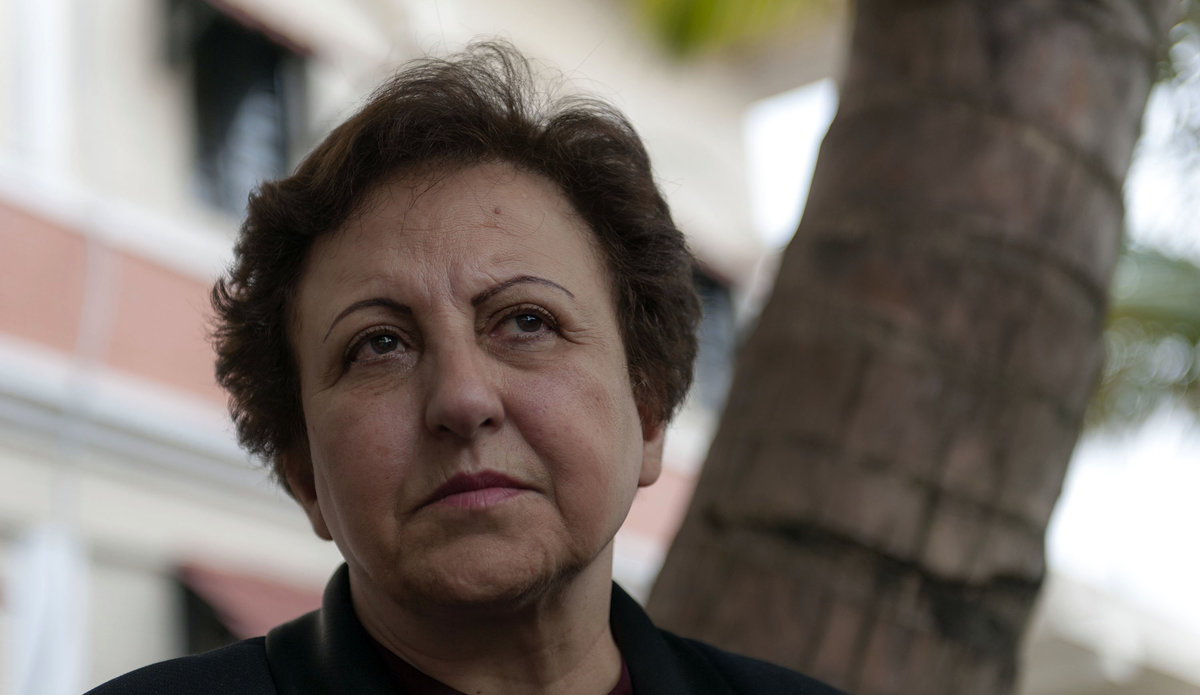“Strong” Liberian Women Impress Shirin Ebadi
In late January, four distinguished women, all of them Nobel Peace Laureates, converged in the Liberian capital of Monrovia. UN FOCUS caught up with Shirin Ebadi of Iran, one of the laureates, who is visiting Liberia for the first time.
First impressions? “Over the past few days I’ve spent in Liberia, I’ve been fortunate enough to meet members of civil society, women in particular,” she recounts in Persian through a translator. “I’ve been extremely impressed by the way Liberian women are so strong and have such a will for peace. In any society, in order to achieve peace it must start at the grassroots level and from the people of that country themselves, and it has to start from an early age.”
Shirin Ebadi and fellow Nobel Peace Laureate Jody Williams took the lead in launching the Nobel Women’s Initiative, drawing in others, such as Liberia’s Leymah Gbowee. A quote on its website says: Demilitarization isn’t a dirty word; nonviolence isn’t non-action; and real peace isn’t for wimps. The goal of the organization is to fight for peace but not only with jaw-jaw. “It’s not just about hope and ideas. It’s about action,” says Ebadi.
She would know. Ebadi was one of Iran’s first female judges, serving as Tehran’s city court president between 1975 and 1979. Then came radical political change in her country. She was demoted from Chief Justice to a clerk in the court over which she once presided. She eventually secured early retirement, and set up a private practice. There was no looking back. Controversial cases representing political dissidents followed and she was arrested several times. She set up several NGOs in Iran and wrote several books that have given people an insight into her country. These have been some of the defining elements of her life and work. When asked whether she sees any parallels between Liberian and Iranian women she replies, “all women want equality, they are strong and they are not giving up easily.”
Ebadi and Leymah Gbowee, Mairead Maguire and Jody Williams have been meeting with women from Rockhill in Monrovia and Totota in Bongo County. Despite progress, Ebadi believes education -- including vocational training --is still a much needed key component of Liberia’s advancement. “In the short time I’ve spent here I’ve noticed that there is a dire shortage of schools,” she says. “Not only that -- sometimes the boys and girls must walk for miles, or cross rivers, to get to the ones that exist. It would be very helpful if the UN could help to construct more schools. Teachers’ training is very important. The UN and other international bodies must set up special programmes for teachers.”
“The Liberian Government must also give priority to training women in skills – they should encourage these women to begin their own businesses so that they can make a living from that,” Ebadi adds.
I tell her about an FAO/Danish Government project under which women in Lofa, Nimba and Bong counties are running their own farms rearing chickens and growing rice. They have access to bank accounts and are provided with agricultural products and generators from the project to further strengthen their businesses.
“Yes, that’s extremely important. Once women in Liberia feel they are empowered enough and have economic independence, then they can stand on their own feet.”
What’s your greatest achievement? Almost without skipping a beat she answers: “showing that Islam is not incompatible with democracy and human rights, and that even under Islam, women can have equal rights with men.”
“My message to the women of Liberia is that you must have self-confidence and you must continue with what you are doing - and I am sure that your future will be much better than today”.
 UN
UN United Nations Peacekeeping
United Nations Peacekeeping





